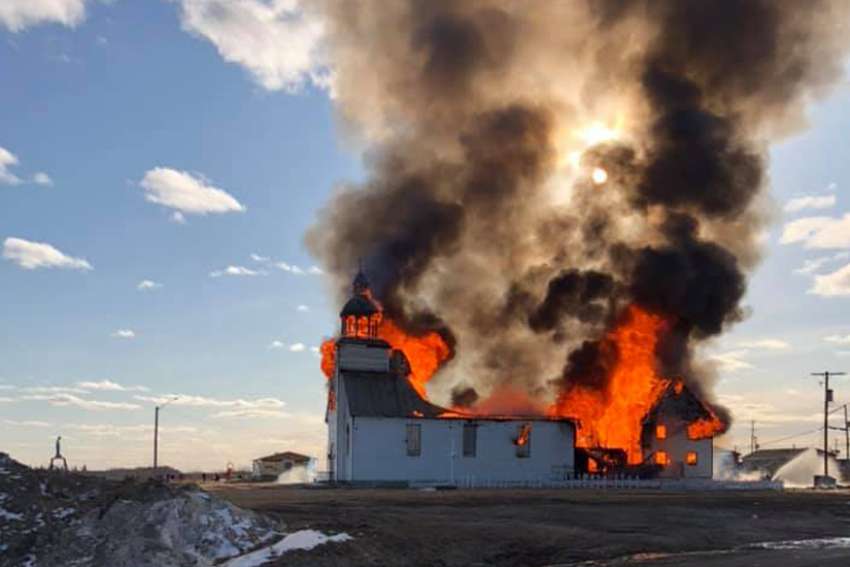But others have taken things into their own hands with arson and vandalizing of churches across the country the most extreme response to the discoveries. Since June, close to 50 houses of worship have been desecrated, mostly Catholic.
Too much violence is occurring for a movement seeking apologies, reconciliation and peace between the past and present.
Certainly the necessary remedies that could forge a more unified future should be granted. Pope John Paul II, during his visit to Canada in 1984, apologized to the Indigenous peoples and promised to walk alongside them to attain reconciliation. This process will take time. The Catholic Church is striving to answer for its actions over more than a century.
But there is a limitation to the apologies that we can give. We can’t beg forgiveness for every single graveyard found. We must direct our energies to fixing our present and understand violence will not be a path to reconciliation.
The violence against Christian churches is a move that will, too, oppress a belief, a religion. The vandals apparently assert that the entirety of the Christian faith is at fault. The ideology behind the desecration is to make those within and without the Church know about the violence the institution has done to the residential school children. These acts are nothing but a misguided version of social justice. What happens is quite the contrary: it provokes more violence and division. There is irony in the use of violence to prevent violence.
However, the more profanity, violent behaviour and misguided ideology this culture is propagating, the further we walk away from any reconciliation.
We are now a highly educated nation and society, we must then use our education for everyone’s benefit. We must learn the histories, culture and social understanding of our time and of the time that has passed so that we can better the future. We must understand that what was acceptable then is no longer acceptable now, so we must act accordingly. We must also understand the limitations of what we can do now and how much we can affect the past.
We can start by clarifying the differences between the terms “mass grave” and “unmarked grave.” As an anthropologist by discipline, these two terms are among the first key terms we must learn and take to heart so that we can understand and have full respect towards the remains that we encounter. A mass grave denotes a pit dug to receive a large number of corpses as if it were a massacre or through other violent means while an unmarked grave is a burial ground that is — for various reasons — just that, unmarked.
Cowessess First Nation’s Chief Cadmus Delorme told the National Post June 24 that they are not condoning the idea that the graves were deliberately hidden or that they are “mass graves”; these claims never appeared in statements from the First Nations who have announced discoveries of unmarked burials. “This is not a mass grave site, these are unmarked graves.”
Delorme further explains there are numerous reasons that residential school graves remain unmarked: they were never marked in the event of high death rates such as during the time of an epidemic, they were once marked but were neglected or the cemetery sites were turned over to private or municipal developers. He further clarifies that even though children may compose the vast majority of those who died we must not forget that a “church mission was a mini-society... community members would be buried in the mission cemetery, as well as students who died at the school.”
(Ducepec, 22, is a recent Bachelor of Science graduate from the University of Toronto.)


